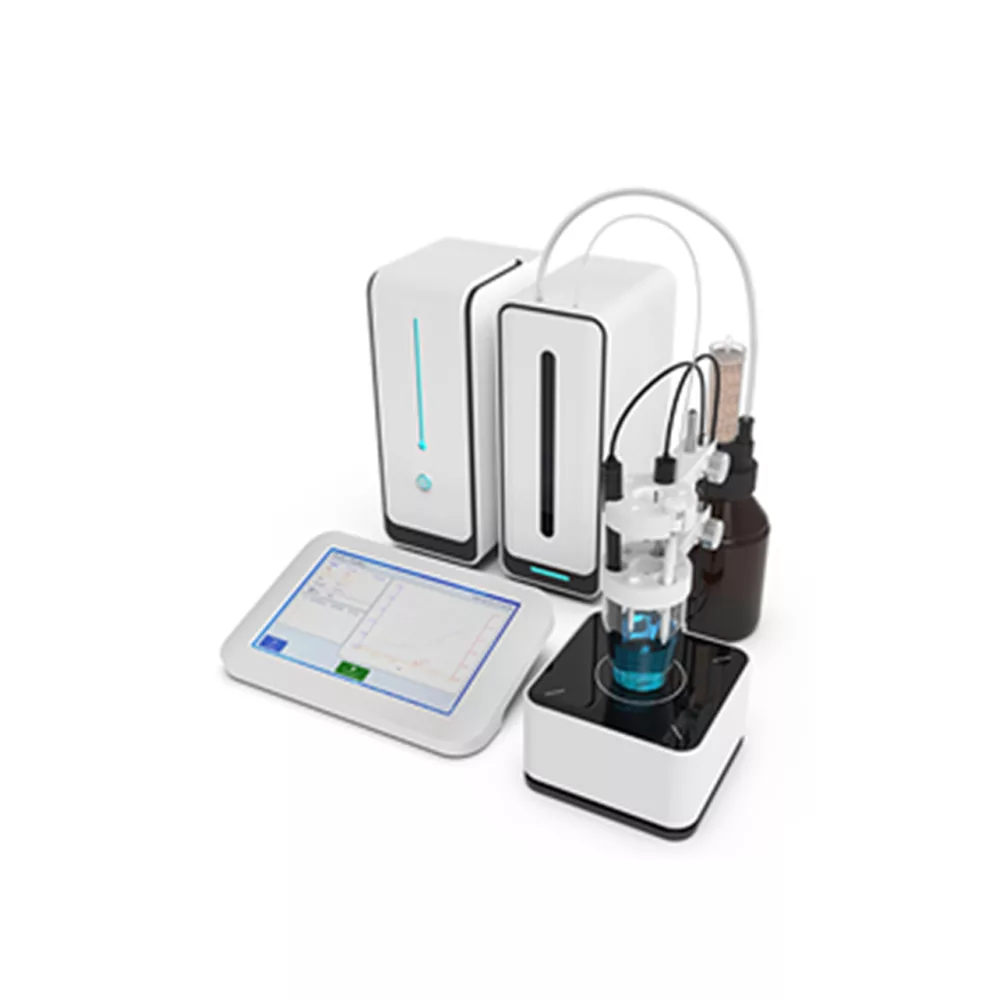Auto Titrator: Precision and Efficiency in Automated Titration
Auto Titrator KTI/A/20 is an advanced laboratory instrument designed to automate the process of titration, which is one of the most common techniques used to determine the concentration of an analyte in a sample. Whether you’re working in chemistry labs, pharmaceuticals, food and beverage quality control, or environmental testing, an auto titrator offers precise, repeatable results with greater speed and less manual effort compared to traditional titration methods.
In this comprehensive guide, we’ll explore what an auto titrator is, its key features, various applications, and the advantages it offers in laboratory analysis.
What is an Auto Titrator?
An Auto Titrator, or automated titrator, is a laboratory device that automatically dispenses a titrant (a solution of known concentration) into a sample solution until a reaction reaches its endpoint. The instrument continuously measures the change in the sample’s properties (such as pH, conductivity, or voltage) during the titration process, ensuring highly accurate detection of the endpoint.
Traditional manual titration requires the operator to visually observe the endpoint using indicators or pH meters, but an auto titrator eliminates manual observation by automatically determining the endpoint with precision sensors and data processing. This not only reduces the chance of human error but also increases lab productivity by allowing for more samples to be processed in less time.
Key Features of an Auto Titrator KTI/A/20
Auto titrators come with advanced features designed to streamline titration processes, improve accuracy, and simplify data collection.
1. Automated Dispensing of Titrant
- The core function of an auto titrator is its ability to automatically dispense the titrant with high precision. This ensures that the exact amount of titrant is delivered based on real-time feedback from sensors, leading to precise endpoint detection.
2. Multiple Titration Types
- Auto titrators are capable of performing various types of titrations, including:
- Acid-Base Titration: Measures the pH change in a solution to determine the concentration of acids or bases.
- Redox Titration: Involves the transfer of electrons and is used to analyze oxidation-reduction reactions.
- Complexometric Titration: Often used to determine metal ions in a solution using complexing agents.
- Precipitation Titration: Used when a precipitate forms as the reaction product, commonly for halides.
- Karl Fischer Titration: A specialized titration for measuring water content in samples, widely used in industries such as petrochemicals and food production.
3. Precise Endpoint Detection
- Modern auto titrators use advanced sensors, such as pH electrodes, ion-selective electrodes, conductivity probes, or optical sensors, to detect the endpoint of a titration accurately. These sensors eliminate guesswork, ensuring that the endpoint is detected consistently, even in complex titrations.
4. Programmable Methods
- Auto titrators come with programmable methods that allow users to create customized titration protocols for specific samples or analytes. This feature is particularly useful in laboratories that conduct multiple types of titrations regularly, as it reduces setup time and ensures consistency across experiments.
5. Data Logging and Analysis
- Many auto titrators are equipped with digital interfaces and software for logging titration data, such as volume of titrant used, endpoint, and analyte concentration. The ability to store, export, and analyze data electronically simplifies record-keeping and enhances regulatory compliance.
6. Sample Handling Automation
- Advanced auto titrators can be paired with sample changers or autosamplers, allowing multiple samples to be processed without operator intervention. This feature significantly increases throughput and reduces the likelihood of errors caused by manual handling.
7. User-Friendly Interface
- Auto titrators feature intuitive user interfaces with touchscreen displays, making it easy for lab technicians to set up, monitor, and analyze titration experiments. Pre-installed methods and templates also reduce the learning curve for new users.
Applications of Auto Titrators
Auto titrators are used in a wide range of industries, making them one of the most versatile tools for quantitative chemical analysis. Some of the key application areas include:
1. Pharmaceutical Industry
- In the pharmaceutical industry, precise control over chemical reactions is crucial to ensure the safety, efficacy, and quality of drugs. Auto titrators are used to analyze active pharmaceutical ingredients (APIs), excipients, and final drug formulations to determine concentrations, purity levels, and water content through Karl Fischer titration. Regulatory bodies like the FDA require consistent and accurate analysis of pharmaceutical products, making auto titrators essential for compliance.
2. Food and Beverage Industry
- The food and beverage industry relies on titration for quality control, especially in measuring acidity, alkalinity, salt content, and other chemical properties of food and drink products. For example, auto titrators are commonly used to monitor acidity in wine, juice, and dairy products to ensure taste consistency and shelf-life stability. They are also critical in testing preservatives and additives, which must be measured accurately for health and safety standards.
3. Chemical and Petrochemical Industry
- Auto titrators are widely used in the chemical and petrochemical sectors to analyze raw materials and finished products. Common tests include determining the concentration of acids, bases, metal ions, or water content in oils, fuels, and lubricants. In these industries, precise chemical composition analysis is essential for ensuring product performance, safety, and regulatory compliance.
4. Environmental Testing
- Environmental testing laboratories use auto titrators to monitor pollution levels in water, soil, and air samples. For instance, titration can measure the alkalinity or acidity of water bodies, helping assess their environmental health. It is also used in the determination of chloride levels, dissolved oxygen, and other water quality parameters important for environmental compliance.
5. Academic and Research Institutions
- In academic and research labs, auto titrators facilitate experimentation by providing consistent, accurate results for teaching purposes and scientific research. They allow for in-depth study of chemical reactions, substance purity, and other areas where quantitative analysis is needed.
Benefits of Using an Auto Titrator
1. Increased Accuracy and Precision
- One of the primary advantages of using an auto titrator is its ability to dispense titrants with high precision, reducing human error and variability. Accurate endpoint detection ensures consistent and reproducible results, which is especially important in industries where quality control and regulatory compliance are critical.
2. Improved Efficiency
- Auto titrators significantly speed up the titration process by automating titrant dispensing, endpoint detection, and result calculation. This frees up lab technicians to focus on other tasks, improving overall workflow efficiency in the lab.
3. Enhanced Data Management
- With the ability to store and analyze data digitally, auto titrators simplify record-keeping and enhance traceability. This is particularly important in regulated industries, where accurate documentation of testing procedures and results is required for audits and compliance.
4. Reduced Operator Fatigue
- Manual titration can be time-consuming and physically demanding, especially when handling large sample volumes. Auto titrators remove the need for continuous manual intervention, reducing operator fatigue and minimizing the likelihood of errors.
5. Versatility in Sample Analysis
- Auto titrators can handle a wide range of sample types and titration methods, making them adaptable to various industries and applications. From analyzing water content in oils to determining the concentration of acids in beverages, auto titrators offer versatility and reliability in chemical analysis.
How to Choose the Right Auto Titrator for Your Lab
Selecting the right auto titrator for your laboratory requires considering several key factors to ensure it meets your specific needs:
1. Titration Method Requirements
- Determine what type of titrations you will be performing most frequently (e.g., acid-base, redox, or Karl Fischer titrations). Some auto titrators are optimized for specific methods, while others offer flexibility to handle multiple titration types.
2. Sample Throughput
- Consider the volume of samples you process regularly. If your lab handles high sample throughput, you may want to invest in an auto titrator with autosampling capabilities to improve efficiency and reduce hands-on time.
3. Accuracy and Precision
- For industries where precise results are critical, such as pharmaceuticals or environmental testing, look for auto titrators with high-precision sensors and dispensing systems. This ensures the highest accuracy for your titration results.
4. Data Management and Connectivity
- Choose a model that integrates well with your existing laboratory information management systems (LIMS) or data management platforms. This will allow for seamless data transfer, storage, and reporting.
5. User-Friendly Interface
- Ensure that the auto titrator you select has an intuitive interface, especially if multiple technicians with varying skill levels will be using it. Pre-programmed methods and easy-to-navigate controls will make titration setups faster and reduce potential errors.
Conclusion
An Auto Titrator is an essential tool for any laboratory performing quantitative chemical analysis. With its automation of the titration process, precise endpoint detection, and ability to handle a wide range of titration methods, auto titrators provide unparalleled accuracy, efficiency, and reliability in testing. Whether you’re working in pharmaceuticals, food and beverage production, environmental testing, or academic research, investing in an auto titrator will enhance the precision and productivity of your laboratory, ensuring consistent and high-quality results across all your titration needs.





Reviews
There are no reviews yet.